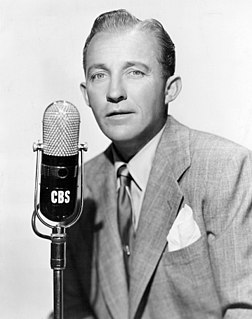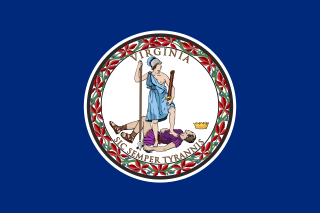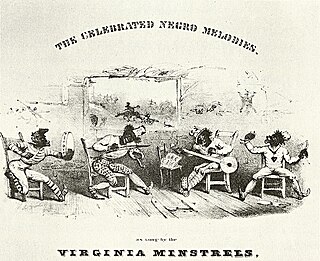
Benjamin Robertson "Ben" Harney was an American songwriter, entertainer, and pioneer of ragtime music. His 1895 composition "You've Been a Good Old Wagon but You Done Broke Down" is regarded as among the earliest, if not the earliest, ragtime composition. Though now probably more associated with Scott Joplin, in 1924 the New York Times wrote that Ben Harney "probably did more to popularize ragtime than any other person." Time Magazine termed him "Ragtime's Father" in 1938.
The Londonderry Air is an Irish air that originated in County Londonderry. It is popular among the American Irish diaspora and is well known throughout the world. The tune is played as the victory sporting anthem of Northern Ireland at the Commonwealth Games. The song "Danny Boy" uses the tune, with a set of lyrics written in the early 20th century.

"Auld Lang Syne" is a Scots-language poem written by Robert Burns in 1788 and set to the tune of a traditional folk song. It is well known in many countries, especially in the English-speaking world, its traditional use being to bid farewell to the old year at the stroke of midnight on New Year's Eve. By extension, it is also sung at funerals, graduations, and as a farewell or ending to other occasions. The international Scouting movement in many countries uses it to close jamborees and other functions.

"Saint Louis Blues" is a popular American song composed by W. C. Handy in the blues style and published in September 1914. It was one of the first blues songs to succeed as a pop song and remains a fundamental part of jazz musicians' repertoire. Louis Armstrong, Bing Crosby, Bessie Smith, Count Basie, Glenn Miller, Guy Lombardo, and the Boston Pops Orchestra are among the artists who have recorded it. The song has been called "the jazzman's Hamlet."
"Turkey in the Straw" is a well-known American folk song dating from the early 19th century. The first part of the song's tune may be derived from the ballad "My Grandmother Lived on Yonder Little Green" which was a derivative of the Irish ballad "The Old Rose Tree." Originally a tune for fiddle players, it was first popularised in minstrel shows during the late 1820s and early 1830s by blackface performers, notably George Washington Dixon and Bob Farrell.
"Men of Harlech" or "The March of the Men of Harlech" is a song and military march which is traditionally said to describe events during the seven-year siege of Harlech Castle between 1461 and 1468. Commanded by Constable Dafydd ap Ieuan, the garrison withstood the longest known siege in the history of the British Isles. "Through Seven Years" is an alternative name for the song. The song has also been associated with the earlier, briefer siege of Harlech Castle about 1408, which pitted the forces of Owain Glyndŵr against the future Henry V of England.
Parlour music is a type of popular music which, as the name suggests, is intended to be performed in the parlours of middle-class homes by amateur singers and pianists. Disseminated as sheet music, its heyday came in the 19th century, as a result of a steady increase in the number of households with enough surplus cash to purchase musical instruments and instruction in music, and with the leisure time and cultural motivation to engage in recreational music-making. Its popularity waned in the 20th century as the phonograph record and radio replaced sheet music as the most common method of dissemination of popular music. This is the middlebrow and lowbrow music from which European classical music began to gradually and eventually self-consciously distance itself beginning around 1790.
"Gwine to Run All Night, or De Camptown Races" is a minstrel song by Stephen Foster (1826–1864). It was published in February 1850 by F. D. Benteen of Baltimore, Maryland, and Benteen published a different version with guitar accompaniment in 1852 under the title "The Celebrated Ethiopian Song/Camptown Races". The song quickly entered the realm of popular Americana. In 1909, composer Charles Ives incorporated the tune and other vernacular American melodies into his orchestral Symphony No. 2.
"Jimmy Crack Corn" or "Blue Tail Fly" is an American song which first became popular during the rise of blackface minstrelsy in the 1840s through performances by the Virginia Minstrels. It regained currency as a folk song in the 1940s at the beginning of the American folk music revival and has since become a popular children's song. Over the years, several variants have appeared.

"Dixie", also known as "Dixie's Land", "I Wish I Was in Dixie", and other titles, is a popular song in the Southern United States. It is one of the most distinctively Southern musical products of the 19th century and probably the best-known song to have come out of blackface minstrelsy. It was not a folk song at its creation, but it has since entered the American folk vernacular. The song likely cemented the word "Dixie" in the American vocabulary as a nickname for the Southern United States.

"Old Dan Tucker", also known as "Ole Dan Tucker", "Dan Tucker", and other variants, is an American popular song. Its origins remain obscure; the tune may have come from oral tradition, and the words may have been written by songwriter and performer Dan Emmett. The blackface troupe the Virginia Minstrels popularized "Old Dan Tucker" in 1843, and it quickly became a minstrel hit, behind only "Miss Lucy Long" and "Mary Blane" in popularity during the antebellum period. "Old Dan Tucker" entered the folk vernacular around the same time. Today it is a bluegrass and country music standard. It is no. 390 in the Roud Folk Song Index.
"Hesitation Blues" is a popular song adapted from a traditional tune. One version was published by Billy Smythe, Scott Middleton, and Art Gillham. Another was published by W.C. Handy as "Hesitating Blues". Because the tune is traditional, many artists have taken credit as writer, frequently adapting the lyrics of one of the two published versions. Adaptations of the lyrics vary widely, though typically the refrain is recognizably consistent. The song is a jug band standard and is also played as blues and sometimes as Western swing. It is cataloged as Roud Folk Song Index No. 11765.
"Rock-a-bye Baby" is a nursery rhyme and lullaby. The melody is a variant of the English satirical ballad "Lillibullero". It has a Roud Folk Song Index number of 2768.
"The Parting Glass" is a Scottish traditional song, often sung at the end of a gathering of friends. It was purportedly the most popular parting song sung in Scotland before Robert Burns wrote "Auld Lang Syne".
"Wild Mountain Thyme" is an Irish/Scottish folk song. The lyrics and melody are a variant of the song "The Braes of Balquhither" by Scottish poet Robert Tannahill (1774–1810) and Scottish composer Robert Archibald Smith (1780–1829), but were adapted by Belfast musician Francis McPeake into "Wild Mountain Thyme" and first recorded by his family in the 1950s.
Jean Bell Thomas was an American folk festival promoter, author and photographer who specialized in the music, crafts, and language patterns of the Appalachian region of the United States.

Hebrew Melodies is a collection of 30 poems by Lord Byron. They were largely created by Byron to accompany music composed by Isaac Nathan, who played the poet melodies which he claimed (incorrectly) dated back to the service of the Temple in Jerusalem.

"Li'l Liza Jane", also known as "Little Liza Jane","Liza Jane", and "Goodbye Liza Jane", is a song dating back at least to the 1910s. It has become a perennial standard both as a song and an instrumental in traditional jazz, folk music, and bluegrass, and versions have repeatedly appeared in other genres including rock and roll. It is one of the standards of the New Orleans brass band tradition. Numerous scholars and musicologists have written about the song and the song is the subject of a forthcoming documentary film.
Angelina Baker, sometimes sung as Angeline the Baker is a song written by Stephen Foster for the Christy Minstrels, and published in 1850. The original laments the loss of a woman slave, sent away by her owner. The lyrics have been subjected to the folk process, and some versions have become examples of the "Ugly Girl" or "Dinah" song.
"Old Rosin the Beau" is an American folk song popular in the 19th century, probably of British or Irish origin, first published in Philadelphia during 1838.













